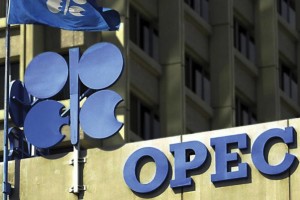
OPEC and Russia’s efforts to curb oil output, combined with forecasts for strong global demand growth, are expected to keep crude prices close to $60 a barrel in 2018, a Reuters poll of analysts showed on Thursday.
The survey of 32 economists and analysts forecast Brent crude would average $59.88 a barrel in 2018, up from the $58.84 forecast in the previous monthly poll.
Oil prices, which hit 2-1/2 year highs this week, have rallied by more than 30 percent since the Organization of the Petroleum Exporting Countries (OPEC) and non-OPEC producers agreed to limit production from January 2017.
The producers last month extended the deal to curb output throughout 2018.
“Oil demand will be high in 2018, with solid economic growth worldwide … Supply will be relatively tight because of high OPEC commitment,” said Frank Schallenberger, Head of Commodity Research at LBBW.
Large supplies of crude will head to Asia to satisfy strong demand from the region, analysts said.
U.S. exports to Asia have already increased with higher Middle East oil prices because of the OPEC-led output cuts and a wide WTI-Brent spread.
Total crude oil imports to China, one of the world’s biggest oil consumers, rebounded to the second-highest level on record in November at 9.01 million barrels per day (bpd).
U.S. light crude was expected to average $55.78 a barrel next year, up from last month’s forecast of $54.78.
Strong OPEC compliance with the supply pact should lend support to prices, analysts said. However, price rise will be capped by booming shale output in the United States, which is not participating in the global deal to curb production.
U.S. oil production, which has risen more than 16 percent since mid-2016, is expected to surpass 10 million bpd next year, some analysts said.
“We see U.S. supply continuing to grow next year but are less concerned about a sudden supply glut re-emerging as rising D&C (drilling and completion) costs will likely slow production growth,” said Ashley Petersen of Stratas Advisors.
Production disruptions in Libya and Nigeria and a possible renewal of U.S. sanctions on Iran are also likely to support prices in 2018, analysts said.
Agency Report
